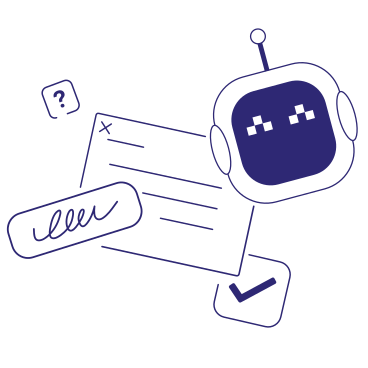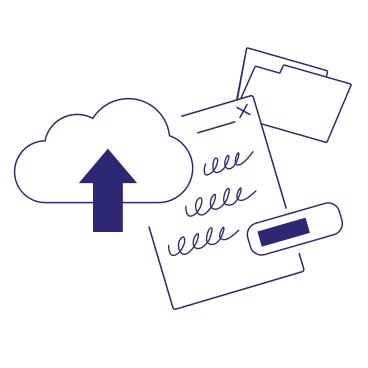Unlock CAPA Management: AI Chatbot Insights
In the realm of quality management, a transformation is underway. Imagine a world where complex corrective and preventive actions are managed with the precision of artificial intelligence, where chatbots become your trusted allies in maintaining compliance and driving continuous improvement. This isn't a glimpse into a distant future—it's the cutting-edge reality of CAPA management today. As businesses strive for operational excellence, integrating AI chatbots into CAPA processes unlocks unprecedented levels of efficiency, accuracy, and foresight. Join me as we dive deep into the transformative world of AI-powered CAPA management, where technology and quality assurance converge to redefine industry standards.
Introduction to CAPA Management with AI
The Evolution of Corrective and Preventive Action (CAPA) in Quality Management
Corrective and Preventive Action (CAPA) has long been the backbone of effective quality management systems. Its journey began in the mid-20th century as a systematic approach to addressing and preventing quality issues. Initially, CAPA processes were manual, paper-based systems that relied heavily on human intervention and expertise. As industries evolved, so did the complexity of quality challenges, pushing CAPA to adapt and become more sophisticated.
The advent of digital technologies in the late 20th century marked a significant shift in CAPA management. Quality professionals transitioned from filing cabinets to databases, enabling more efficient tracking and analysis of quality incidents. This digital transformation laid the groundwork for more advanced CAPA systems, incorporating automated workflows and electronic documentation. However, these systems still require substantial human oversight and interpretation.
As we entered the 21st century, integrating enterprise resource planning (ERP) systems and specialized quality management software further streamlined CAPA processes. These tools provided better visibility into quality trends and facilitated more proactive approaches to issue resolution. Yet, despite these advancements, many organizations still grappled with the sheer volume of data and the complexity of modern quality challenges.
The Role of Artificial Intelligence (AI) in Transforming CAPA Processes
The introduction of generative AI into CAPA management marks a paradigm shift in how organizations approach quality issues. AI brings a level of sophistication and capability previously unattainable, transforming CAPA from a reactive tool into a proactive and predictive powerhouse. AI chatbots are at the heart of this transformation, revolutionizing how quality professionals interact with CAPA systems.
AI chatbots in CAPA management serve as intelligent interfaces that can understand natural language, process vast amounts of data, and provide real-time insights. These AI-powered assistants can quickly sift through historical data, identify patterns, and suggest corrective actions based on past successes. This capability accelerates the CAPA process and enhances the quality of decision-making by leveraging a wealth of institutional knowledge.
Moreover, AI's ability to learn and adapt means that CAPA systems become more intelligent. As these systems process more data and interact with users, they refine their algorithms, improving their ability to predict potential quality issues before they occur. This predictive capability is a game-changer, allowing organizations to shift from a reactive stance to a proactive approach in quality management.
Integrating AI in CAPA processes also addresses one of the most significant challenges in quality management: the human factor. By automating routine tasks and providing data-driven insights, AI reduces the risk of human error and bias in CAPA decision-making. This improves the consistency and reliability of CAPA outcomes and frees up quality professionals to focus on more strategic aspects of quality management.
As we delve deeper into AI CAPA management, it becomes clear that this technology is not just an add-on to existing systems—it's a fundamental reimagining of how organizations approach quality. The synergy between human expertise and AI capabilities is creating a new frontier in CAPA management that promises to deliver unprecedented levels of efficiency, accuracy, and foresight in quality assurance.

Deep Dive into CAPA Management with AI Chatbots
Essential Concepts of CAPA Management
Understanding CAPA in the Context of Quality Systems
CAPA, or Corrective and Preventive Action, is a fundamental component of any robust quality management system. It is a structured approach to identifying, addressing, and preventing quality issues. In the context of AI CAPA management, this process becomes even more refined and efficient. AI chatbots can seamlessly integrate with existing quality systems, enhancing the overall effectiveness of CAPA processes.
These intelligent systems can analyze vast amounts of data from various quality touchpoints, providing a holistic view of an organization's quality landscape. By leveraging AI CAPA management, companies can move beyond traditional reactive approaches and adopt a more proactive stance in maintaining quality standards. This integration allows for a more comprehensive understanding of quality trends and potential areas of improvement.
The Importance of Timely and Efficient CAPA Resolution
Timely resolution of CAPA issues is crucial for maintaining regulatory compliance and ensuring product safety. AI CAPA management significantly accelerates this process by automating many time-consuming tasks. Chatbots can instantly initiate CAPA processes upon detecting an issue, reducing the lag between identification and action.
Efficiency in CAPA resolution is not just about speed; it's about making informed decisions quickly. AI-powered systems can rapidly analyze historical data, industry standards, and best practices to suggest the most effective corrective actions. This capability ensures that CAPA resolutions are not only timely but also optimized for long-term effectiveness.
Supercharge your QMS with smarter employee support
Revolutionizing CAPA with AI Chatbots
Automated Case Logging and Tracking
One of the most immediate benefits of AI CAPA management is the automation of case logging and tracking. AI chatbots can interact with users in natural language, effortlessly gathering essential information about quality incidents. This automated process ensures that all relevant details are captured accurately and consistently, eliminating the risk of human error in data entry.
Moreover, AI chatbots can continuously track the progress of CAPA cases, sending automated reminders and updates to relevant stakeholders. This level of automation keeps CAPA processes on track and ensures that nothing falls through the cracks, significantly improving the overall efficiency of quality management systems.
AI-Driven Root Cause Analysis through Natural Language Processing
Root cause analysis is a critical step in any CAPA process, and AI chatbots are revolutionizing this aspect through advanced natural language processing (NLP). These systems can analyze unstructured data from various sources, including incident reports, customer complaints, and maintenance logs, to identify underlying patterns and potential root causes.
By leveraging NLP, AI CAPA management systems can interpret complex technical jargon and contextual information, providing insights that human analysts might miss. This capability speeds up the root cause analysis process and enhances its accuracy and depth, leading to more effective corrective actions.
Dynamic Risk Assessment and Prioritization with Machine Learning Algorithms
AI CAPA management systems employ sophisticated machine learning algorithms to assess dynamic risk. These algorithms can analyze multiple factors simultaneously, including the severity of the issue, potential impact on product quality, and historical data, to prioritize CAPA cases effectively.
This dynamic approach ensures that the most critical issues receive immediate attention, optimizing resource allocation and minimizing potential risks. As the system learns from each case, its risk assessment capabilities become increasingly refined, leading to more accurate prioritization over time.
Real-Time Monitoring and Proactive Alerting Systems for Ongoing Compliance
Perhaps one of the most powerful features of AI CAPA management is its ability to provide real-time monitoring and proactive alerting. AI chatbots can continuously analyze data streams from various sources, detecting potential quality issues before they escalate into significant problems.
These systems can send instant alerts to relevant personnel when detecting anomalies, allowing for rapid response and intervention. Furthermore, AI CAPA management can predict potential compliance issues by analyzing trends and patterns, enabling organizations to take preventive measures proactively. This shift from reactive to predictive quality management represents a significant leap forward in ensuring ongoing compliance and maintaining high-quality standards.

Benefits and Challenges of Implementing AI in CAPA Management
Benefits: Efficiency, Accuracy, and Predictive Insights
Integrating AI CAPA management systems brings many benefits transforming the quality management landscape. These advantages enhance operational efficiency and provide organizations with unprecedented insights into their quality processes.
Streamlining Workflow and Reducing Manual Efforts
One of the most significant benefits of AI CAPA management is its ability to streamline workflows and dramatically reduce manual efforts. AI-powered chatbots can efficiently handle routine tasks such as data entry, case logging, and status updates. This automation allows quality professionals to focus on more complex, value-added activities.
According to recent statistics, chatbots can increase customer engagement by up to 60% and save businesses up to 30% in customer support costs. While this data is from a general business context, it indicates the potential efficiency gains in CAPA management. By automating routine interactions and data collection, AI chatbots in CAPA systems can significantly reduce the time and resources required for managing quality issues.
Increased Accuracy in Data Analysis and Decision Making
AI CAPA management systems excel in processing and analyzing vast amounts of data with accuracy that surpasses human capabilities. These systems can identify subtle patterns and correlations that might be overlooked in manual analysis, leading to more informed decision-making.
The enhanced accuracy extends to root cause analysis and corrective action recommendations. By leveraging historical data and learning from past resolutions, AI systems can suggest more effective and targeted solutions to quality issues. This data-driven approach minimizes the risk of human error and bias in CAPA processes.
Enhanced Predictive Maintenance through Early Identification of Potential Issues
Perhaps one of the most valuable benefits of AI CAPA management is its predictive capability. By continuously analyzing data from various sources, these systems can identify potential quality issues before they manifest into serious problems. This early warning system enables organizations to shift from reactive to proactive quality management.
Studies show that 90% of businesses report substantial enhancements in complaint resolution speed after using chatbots. In the context of CAPA management, this translates to faster identification and resolution of quality issues, potentially preventing costly recalls or compliance violations.
Seamless multi-lingual support
AI chatbots are revolutionizing CAPA management by providing real-time translation and interpretation services, significantly enhancing communication across diverse linguistic landscapes. This capability ensures that all stakeholders, regardless of their native language, can effectively engage in the CAPA process. By breaking down language barriers, AI chatbots enable seamless collaboration among global teams, ensuring that corrective and preventive actions are accurately understood and implemented.
Challenges: Integration, Data Privacy, and Workforce Adaptation
While the benefits of AI CAPA management are substantial, organizations must also navigate several challenges to implement these systems successfully.
Tackling Integration Hurdles with Existing QMS Platforms
One of the primary challenges in implementing AI CAPA management is integrating these advanced systems with existing Quality Management System (QMS) platforms. Many organizations have invested heavily in their current QMS infrastructure, and ensuring seamless integration with AI-powered tools can be complex.
The integration process often requires careful planning and may involve customization to ensure that AI CAPA management systems can effectively communicate with existing databases and workflows. Organizations must also consider the integrated system's scalability to accommodate future growth and technological advancements.
Managing Workforce Transition and Upskilling
Introducing AI CAPA management systems inevitably leads to changes in job roles and required skill sets within quality management teams. While these systems reduce the need for manual data entry and routine tasks, they create a demand for professionals who can interpret AI-generated insights and manage these advanced systems.
Organizations face the challenge of upskilling their existing workforce to utilize AI CAPA management tools effectively. This transition may involve comprehensive training programs and a shift in organizational culture to fully embrace data-driven decision-making.
Additionally, employees who fear job displacement may initially resist. Addressing these concerns through clear communication about AI's role as a tool to augment human capabilities rather than replace them is essential for successful implementation.
In conclusion, while AI CAPA management offers significant benefits in efficiency, accuracy, and predictive insights, organizations must carefully navigate the challenges of integration, data privacy, and workforce adaptation. By addressing these challenges proactively, companies can fully harness the power of AI to revolutionize their CAPA processes and elevate their quality management to new heights.
CAPA Best Practices Enhanced by AI Chatbots
Integrating AI chatbots into CAPA systems represents a significant leap forward in quality management. Organizations must adopt structured approaches and best practices to fully harness AI CAPA management's potential. This section explores strategies for successfully implementing and optimizing AI-enhanced CAPA processes.
Structured Approaches for Successful AI Integration in CAPA Systems
Assessment and Pilot Testing Strategies
Before fully implementing AI CAPA management, it's crucial to thoroughly assess your current CAPA processes and identify areas where AI can add the most value. This assessment should include:
- Analyzing existing CAPA data to identify patterns and inefficiencies
- Evaluating the readiness of your IT infrastructure to support AI integration
- Assessing the skill level of your quality management team and identifying training needs
Once the assessment is complete, develop a pilot testing strategy. This approach allows you to:
- Test the AI CAPA management system in a controlled environment
- Gather feedback from a select group of users
- Identify and address potential integration issues early
- Fine-tune the AI algorithms to match your specific CAPA requirements
During the pilot phase, focus on key performance indicators such as response time, accuracy of root cause analysis, and user satisfaction. Use these metrics to refine the system before full-scale implementation.
Implementation Steps and Continuous Optimization
After successful pilot testing, fully implement the AI CAPA management system. Follow these steps for a smooth transition:
- Develop a comprehensive implementation plan with clear timelines and milestones
- Provide thorough training to all users, emphasizing the benefits of AI-enhanced CAPA processes
- Gradually roll out the system across different departments or sites
- Establish a feedback loop to gather user input and system performance data continuously
- Regularly update and optimize the AI algorithms based on new data and changing business needs
Remember that AI CAPA management is not a "set it and forget it" solution. Continuous optimization is key to maintaining its effectiveness. Regularly review system performance, update training data, and refine AI models to ensure they remain aligned with your evolving quality management needs.

CAPA Verification & Effectiveness Checks Using AI Insights
Leveraging AI for More Thorough Verification Processes
AI CAPA management systems can significantly enhance the verification process, ensuring that corrective and preventive actions are appropriately implemented and effective. Here's how AI can be leveraged for more thorough verification:
- Automated document review: AI can quickly scan and analyze documentation related to CAPA implementation, ensuring completeness and compliance with established procedures.
- Pattern recognition: By analyzing historical data, AI can identify similar past issues and their resolutions, providing context for current verification processes.
- Real-time monitoring: AI chatbots can continuously monitor key performance indicators related to the implemented CAPA, alerting quality managers to deviations or potential issues.
Implement a structured verification checklist within your AI CAPA management system. This checklist should include:
- Confirmation of CAPA implementation
- Assessment of documentation completeness
- Evaluation of adherence to timelines
- Analysis of immediate impact on quality metrics
By automating these verification steps, AI ensures a consistent and thorough approach to CAPA verification, reducing the risk of human oversight.
Evaluating CAPA Effectiveness with Predictive Analytics
One of the most powerful features of AI CAPA management is its ability to use predictive analytics to evaluate the long-term effectiveness of implemented actions. This forward-looking approach allows organizations to:
- Anticipate potential recurrences of quality issues
- Identify trends that may indicate the need for further preventive actions
- Quantify the impact of CAPA on overall quality metrics
To effectively use predictive analytics in CAPA effectiveness evaluation:
- Define clear, measurable objectives for each CAPA
- Establish baseline metrics before CAPA implementation
- Use AI to analyze post-implementation data and predict future trends
- Set up automated alerts for any predicted deviations from expected outcomes
By leveraging AI for predictive analysis, organizations can move beyond reactive effectiveness checks to a proactive approach that anticipates and prevents future quality issues.
Implementing these best practices in AI CAPA management will enhance the efficiency and accuracy of your quality management processes and provide deeper insights for continuous improvement. As AI technology evolves, staying committed to these structured approaches will ensure your organization remains at the forefront of quality management innovation.

The Future of CAPA Management: Trends, Innovations, and Forecasts
As we look toward the horizon of quality management, it's clear that AI-driven CAPA systems are not just a passing trend but a fundamental shift in how organizations approach quality assurance. This section explores the emerging trends, innovative technologies, and long-term implications of AI integration in CAPA management.
Upcoming Trends in AI That Could Impact CAPA Processes
The rapid evolution of generative AI technologies is set to revolutionize CAPA processes in the coming years. One of the most significant trends is the increasing sophistication of natural language processing (NLP) in AI chatbots. These advanced systems will understand and respond to complex quality-related queries with unprecedented accuracy, making them invaluable tools for front-line quality management.
The global chatbot market is projected to grow from $7.01 billion in 2024 to $20.81 billion in 2029. This explosive growth indicates the increasing reliance on AI-powered conversational interfaces across industries, including quality management. As these systems become more prevalent, we can expect to see:
- Enhanced predictive capabilities: AI algorithms will become more adept at forecasting potential quality issues before they occur, allowing for genuinely preventive action.
- Improved contextual understanding: Future AI CAPA systems will better grasp the nuances of industry-specific terminology and regulations, providing more accurate and relevant insights.
- Emotion recognition: Advanced AI may be able to detect and respond to user emotions, providing a more empathetic interface for reporting and managing quality issues.
Innovative Technologies on the Horizon for Quality Management Systems (QMS)
The future of Quality Management Systems (QMS) is intertwined with cutting-edge technologies that promise to elevate CAPA management to new heights. Some of the most promising innovations include:
- Blockchain for CAPA traceability: Implementing blockchain technology can create an immutable record of all CAPA activities, ensuring transparency and accountability.
- Internet of Things (IoT) integration: By connecting IoT devices with AI CAPA systems, organizations can monitor quality parameters in real time and automate the initiation of corrective actions.
- Augmented Reality (AR) for on-site inspections: AR technology could allow remote experts to guide on-site personnel through complex CAPA procedures, improving the accuracy and efficiency of implementations.
- Quantum computing for complex analysis: As quantum computing becomes more accessible, it could revolutionize the way AI CAPA systems analyze vast datasets, uncovering previously impossible insights to detect.
67% of businesses believe that by 2025, chatbots will surpass mobile app usage. This shift towards conversational interfaces suggests that future QMS platforms may be primarily accessed and managed through AI chatbots, streamlining user interaction and data input.
Forecasting the Long-Term Implications of AI-Integrated CAPA Solutions
The long-term impact of AI integration in CAPA management is poised to be transformative. The global chatbot market is expected to reach $15.5 billion by 2028, expanding at a compound annual growth rate (CAGR) of 23.3% from 2023 to 2030. This growth trajectory underscores increasing reliance on AI-powered solutions, including quality management, across industries.
Looking ahead, we can anticipate several long-term implications:
- Shift in workforce skills: As AI takes over routine CAPA tasks, quality professionals must develop new skills focused on AI management, data interpretation, and strategic decision-making.
- Regulatory evolution: Regulatory bodies may need to adapt their guidelines to account for AI-driven CAPA processes, potentially leading to new standards for AI transparency and accountability in quality management.
- Predictive quality culture: Organizations will likely shift from reactive to predictive quality management, with AI-integrated CAPA solutions at the forefront of this cultural change.
- Personalized quality management: AI could enable highly customized approaches to quality management, tailoring CAPA processes to specific products, production lines, or even individual employees.
- Cross-industry knowledge sharing: AI CAPA systems could facilitate sharing anonymized quality insights across industries, leading to collective improvements in quality management practices.
77% of customers say chatbots will change their expectations from brands by 2025. This statistic suggests that as AI chatbots become more prevalent in customer-facing roles, organizations will be under increased pressure to implement similar technologies in their internal processes, including CAPA management.
The future of CAPA management is inextricably linked to the advancement of AI and related technologies. Organizations that embrace these innovations and adapt their processes accordingly will be well-positioned to lead in quality management, ensuring higher standards of product safety and customer satisfaction in an increasingly complex global marketplace.
Answers your employees need, right when they need them
Meet Botable — the AI chatbot that handles everything from simple FAQs to complex, multi-step questions, so your team can focus on what matters. Built for HR, QA, and beyond.
Continue reading
Ready to see what Botable can do for you?
Book your demo now to see how Botable can transform your workplace.
Identify your unique challenges
Flexible pricing options
Easy integrations
Step-by-step implementation plan
Customize Botable for your workflow
Book a demo
.webp)









